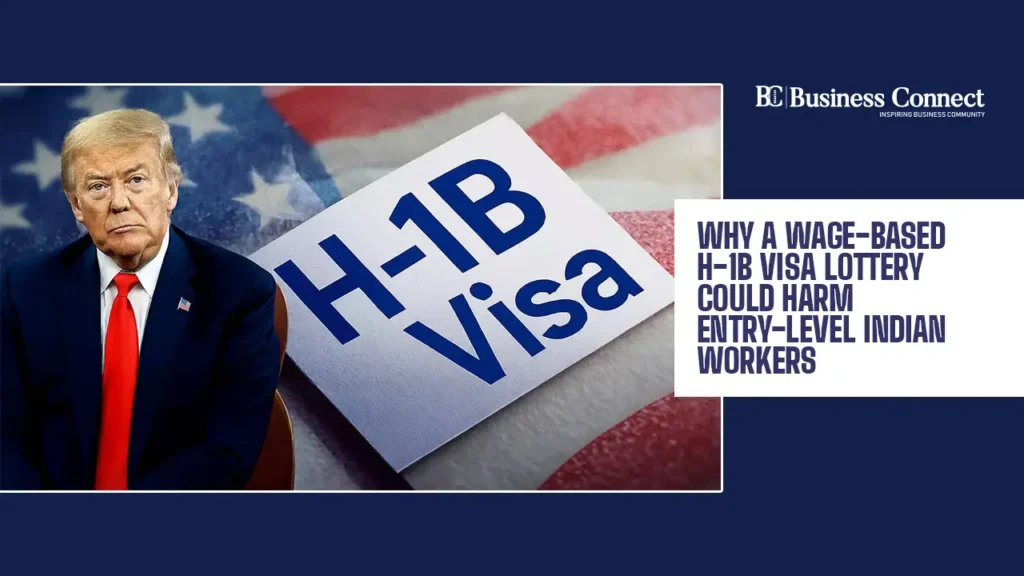Since India is already the largest recipient of H-1B visas, the proposed wage-based visa distribution is likely to have the greatest impact on this country. Entry-level talent, particularly Indians, might be harmed by the Trump administration’s proposals to change the current H-1B lottery system in a way that would favor more highly qualified and compensated foreign workers.
India stands to lose the most from this proposed change because it now benefits the most from the H-1B visa program. Indians accounted for a resounding 71% of the 399,395 H-1B visas that were granted in 2024, with China coming in far behind with just 11.7%.
The US Department of Homeland Security (DHS) has now suggested replacing the random lottery with a weighted selection process that gives preference to higher-paid applicants following the drastic increase in the H-1B visa price to $100,000.
Also Read: Everything You Need to Know About the H1B Visa
Applications from companies paying higher wages would be given preference throughout the allocation process if the yearly demand for H-1B visas exceeds the statutory cap of 85,000 or if demand outpaces supply.
Will the sole criterion for selection be better pay?
Although the DHS has suggested adjustments that would give priority to applications from foreign workers with higher salaries under the H-1B program, this does not imply that visas would be granted only on the basis of income. According to the plan, the procedure “would favor the allocation of H-1B visas to higher skilled and higher paid aliens, while maintaining the opportunity for employers to secure H-1B workers at all wage levels.”
A Bloomberg story claims that the strategy would use data from the Labour Department to assign candidates to four salary tiers. While people at the lowest income level will only have one opportunity in the selection pool, those at the highest level will have four.
How entry-level employees in India may be affected
The inhabitants of India stand to lose the most from US President Donald Trump’s significant proposed reforms, whether it be the skill-level and wage-based allotment or the $100,000 visa cost, because India gains the most from the H-1B visa program.
The majority of H-1B jobs were filled by entry-level employees from China and India in their mid-twenties, earning below-median pay, according to the conservative research tank Heritage Institute. According to immigration attorney Sophie Alcorn of Silicon Valley, entry-level foreign workers will be the most impacted by the proposed reform.
“A wage-based lottery system would reduce the overall demand for skilled immigration, especially for entry-level workers who are aspiring immigrants,” the attorney stated.
The proposed modifications to the H-1B allocation mechanism follow the raising of the visa price by $100,000. This comes amid accusations by conservatives in the United States that firms are abusing the program to undercut American talent and recruit cheaper foreign labor.
Legal challenges are anticipated to be made to the proposed wage-based visa selection process as well as the increase in the H-1B visa cost.
Add Business Connect magazine to your Google News feed
Must Read:-
- Nisha Madhulika India’s richest female YouTuber!
- Larry Ellison of Oracle Suddenly Overtakes Elon Musk as the Richest Person in the World
- Top 10 Richest Comedians In India
- Top 10 Richest Pakistani Actress in 2025 – Who Is Your Favorite?
- Majhi Ladki Bahin Yojana 2025: Benefits, Registration & KYC Guide
- Mukhyamantri Majhi Ladki Bahin Yojana: Empowering Women in Maharashtra



